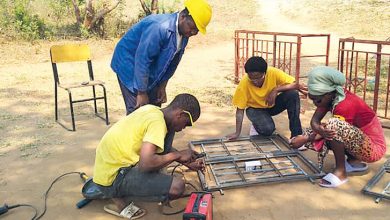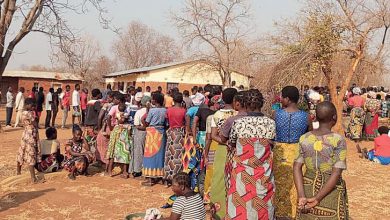Questions over ‘quick-fix’ cement interventions
Questions have emerged on the sustainability and effectiveness of Ministry of Trade and Industry’s “quick-fix” interventions to stabilise cement prices on the local market through paltry imports so far restricted to the capital city.
Further, construction industry players and consumer rights activists have also queried disparities between factory and market price of locally produced cement.

Malawi Building, Civil Engineering and Allied Trade (Mabcata) vice-chairperson Kondwani Kadango in an interview yesterday said while government should be commended for trying to help, the situation on the ground tells a different story.
He said: “I was at some shop in the morning, they were rationing to 10 bags only and, as a contractor, what can I do with that? Within one hour that cement was gone and you wonder how much cement is really coming? The help is not making sense.
“It is not meeting the demand on the market. The second thing is that if local producers sell their cement at K22 500 on factory price, why do we have it at K37 000 on the market? This is something that calls for an investigation.”
In a separate interview, Consumers Association of Malawi executive director John Kapito faulted the arrangement, saying those in authority were failing to understand forces of demand and supply.
He said: “Do they even know how much cement is required? The forces of demand and supply? They are bringing in drops, yet people need a lot of cement.
“Do we have enough forex? Producers locally are struggling and you end up giving forex to a few traders to bring in just a few bags and you think that would solve the situation? For me, this is just some drama, somebody is benefitting.”
Kapito also queried why the cement was not distributed to the rest of the country.
“Does it mean that construction is taking place in Lilongwe only? Someone is really benefiting from all this, sadly, we clap hands for them,” he said.
When contacted yesterday, Cement Products Limited (CPL) managing director Akbar Gaffar said they have not been successful in getting forex from government despite reaching out for support.
“We have not been helped on forex; you should know that we reached out to the Reserve Bank of Malawi, but nothing really. We have to struggle to get forex and still produce and sell at lower prices,” he said.
Gaffar insisted that CPL, which makes Njati brand, maintained factory prices at K22 950.
On dealing with traders that hike prices after getting it at factory price, he said the Competition and Fair Trading Commission and other government agencies should be vigilant in dealing with such profiteering.
Ministry of Trade and Industry spokesperson Patrick Botha said they expected some cement earlier this week and needed to check as he was reportedly in Mozambique.
He had not responded with a comprehensive response by press time.
Last week, Minister of Trade and Industry Vitumbiko Mumba warned local cement producers to play ball by making the product available or face competition from imports with neighbouring Zambia.
The minister expressed the sentiments during a press conference in Lilongwe last evening amid a cement shortage that has pushed the price of a 50 kilogramme bag to as high as K50 000 from around K30 000 two weeks ago.
Malawi’s three cement producers—Shayona based in Kasungu, CPL in Mangochi and Portland Cement Malawi in Blantyre—have a production capacity of 822 012 metric tonnes (MT) against an annual market demand of 1 782 000MT.





